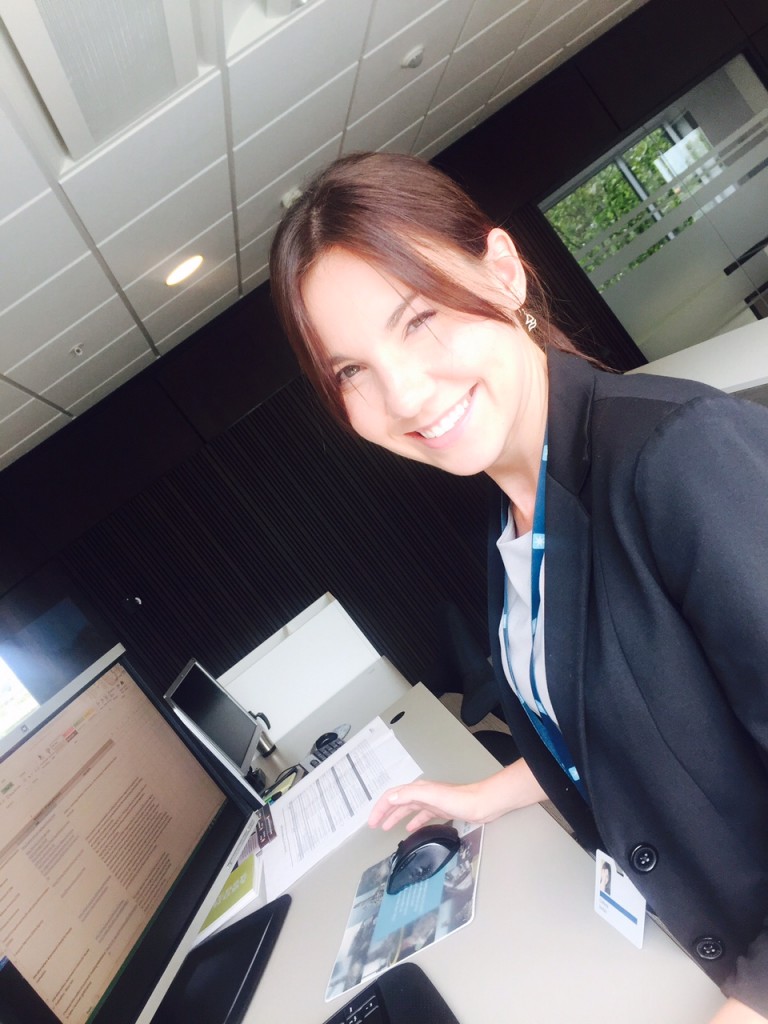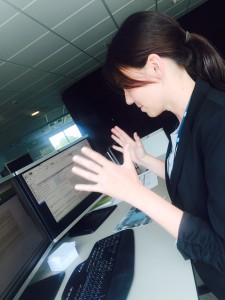I came to Maersk uncertain of what to expect, even uncertain about if I would find fulfillment in the tasks I would be asked to perform. As someone who tears up at the site of oil spill footage, I was downright nervous to walk through the doors of a drilling company’s head office. Now, eight weeks into my fellowship and I feel right at home. I take pride in the tasks that have been given to me and the job itself feels important. Perfect? No. But a valuable response to our current socio-economic composition? Absolutely. That is how I think of my work here, and the work of every single one of my colleagues on the HSSE team. It really feels great to work on something that directly makes a difference for a cause I care about.
After my Peace Corps service, I started wondering about ways in which head offices can improve their relationships with the actual happenings on the ground (that goes for any industry). It is true that there is some disconnect between our experience in the office and the experiences of the men and women working offshore. I sometimes felt the same type of disconnect between Peace Corps staff and Peace Corps volunteers when I was serving, and it is interesting to see the similarities here in a for-profit business atmosphere. It is no one’s fault, it is just the nature of managing a large, widely dispersed group of people. There is always, always room for improvement. Reducing that gap in the oil and gas industry means reducing the chances of an irreversible disaster like Macondo and Piper Alpha happening. It is at the forefront of every HSSE initiative, and I really hope my deliverables will have an impact on the way these critical environmental standards are communicated.
A RECIPE FOR DISASTER
The causes of most, if not all oil disasters can be traced to poor management. Few days pass in my office where a historical oil disaster is not referenced. Macondo (also known as Deepwater Horizon and the BP blowout in the Gulf of Mexico) and Piper Alpha (in the North Sea) are the two I hear referenced most often. While Piper Alpha did not have as significant of an environmental cost as Macondo, it did claim 167 lives because of poor safety management. Macondo, however, took 11 lives and flooded the Gulf of Mexico with crude oil for a straight 36 hours – an estimated 134 million gallons.
Macondo is the perfect example of multi-sectorial management gone awry. From rig-level all the way up to corporate, there were many points where this disaster could have been prevented, but with the operation 43 days behind schedule (operating at $1 million per day), the multiple companies involved responded by making quick, unilateral decisions at the expense of safety standards.
Picture this management structure (maybe take an ibuprofen first): British Petroleum (BP), the owner of the well, held 65% of the interest. Partners Anadarko and Mitsui held a combined total of 35%. The rig itself, Deepwater Horizon, was owned by TransOcean. And separate specialists were brought in to oversee various components of the operation, such as Halliburton (for drilling fluid and cement) and Cameron International (for blowout prevention).
The well itself was incredibly technical and in the end it was ruled that the companies did not understand just how complex it was and put too much confidence in their technologies. In the end, the cement used failed to seal the well, and when the gas bubbles reached the rig, crew members accidentally redirected it inside the rig. When it reached the engine room, it exploded.
Furthermore, the main U.S. regulatory body – at the time the Minerals Management Service – did not have the resources necessary to enforce its own regulations. For example, one major critique is that engineers working for the MMS were paid far less than engineers working in private industry, so typically the MMS attracted lesser qualified professionals, and the turnover rate was high. Safety inspections failed to recognize the lack of technological capacity and training. (Following the Macondo disaster, the MMS underwent extreme restructuring in 2011 and split into BOEM, BSEE and ONRR. Ideally the separate agencies will be able to provide more focused support and enforcement, but it continues to be a work in progress.)
Macondo, Piper Alpha, and so many other offshore accidents big and small are constantly on my mind. I really don’t think accidents just happen, do you? Something has to cause them, like lack of information and carelessness, and those things can be prevented. The Maersk HSSE team has an entire program dedicated specifically to the goal of zero incidents across all management sectors, but the risk is always there and humans make mistakes. That is why it is so important that we turn our attention to renewables. But change takes time, and for now, the oil and gas industry still turns our world. I am having a lot of fun trying to make it better.
And here I am doing math…




